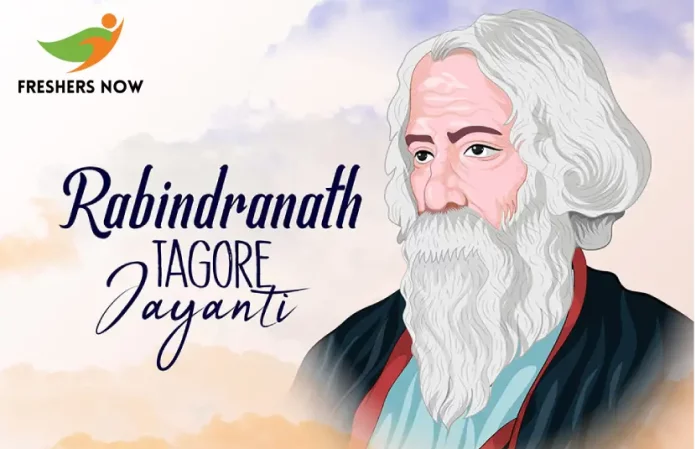
Rabindranath Tagore Jayanti, celebrated on the 25th day of the Bengali month of Boishakh (usually falls in April or May), commemorates the birth anniversary of one of India’s most revered literary figures, Rabindranath Tagore. Fondly known as Gurudev, Tagore’s contributions to literature, music, art, and education have left an indelible mark on Indian culture and beyond.
The Life and Legacy of Rabindranath Tagore
Tagore, born on 7th May 1861, in Kolkata, was a multifaceted genius whose talents transcended boundaries. He was not only a poet but also a novelist, playwright, essayist, and painter. His literary works, including the timeless classic “Gitanjali,” earned him the Nobel Prize in Literature in 1913, making him the first non-European to receive this prestigious award.
Tagore’s Impact on Literature and Beyond
Tagore’s literary prowess extended beyond poetry. His novels, short stories, and essays explored themes of love, nature, spirituality, and the human condition. His deep connection with nature and his ability to capture its essence in words have inspired generations of writers and poets. Moreover, Tagore’s contributions to Bengali literature revitalized the language and played a pivotal role in India’s cultural renaissance.
Tagore’s Musical Legacy
Apart from his literary achievements, Tagore was also a gifted musician and composer. He composed over 2,000 songs, which are collectively known as Rabindra Sangeet. His music, characterized by its simplicity and profound lyrics, continues to resonate with audiences worldwide. Rabindra Sangeet has become an integral part of Indian classical music and is often performed at cultural events and festivals.
Celebrating Tagore Jayanti
Rabindranath Tagore Jayanti is celebrated with great enthusiasm across India, especially in West Bengal, where Tagore’s influence is most profound. Schools, colleges, and cultural institutions organize various events and programs to commemorate his birth anniversary. These include poetry recitations, musical performances, art exhibitions, and seminars discussing Tagore’s life and works. Additionally, many people pay homage to Tagore by visiting his ancestral home, Jorasanko Thakur Bari, in Kolkata.
Tagore’s Relevance Today
Even decades after his passing in 1941, Tagore’s legacy continues to inspire and guide us. His teachings on universalism, education, and humanity remain relevant in today’s world. Through his works, Tagore advocated for peace, harmony, and social justice, ideals that resonate strongly in the contemporary context. As we celebrate Tagore Jayanti, we not only honor his memory but also reaffirm our commitment to upholding his values and principles.
Conclusion
Rabindranath Tagore Jayanti is more than just a commemoration of a literary giant; it is a celebration of India’s rich cultural heritage and intellectual legacy. Tagore’s timeless writings and music enrich our lives and inspire us to strive for excellence in all endeavors. As we reflect on his contributions, let us draw inspiration from his wisdom and carry forward his legacy for generations.
Follow Freshersnow.com for more Current Affairs topics.
| You Can Also Check |
| Current Affairs |



